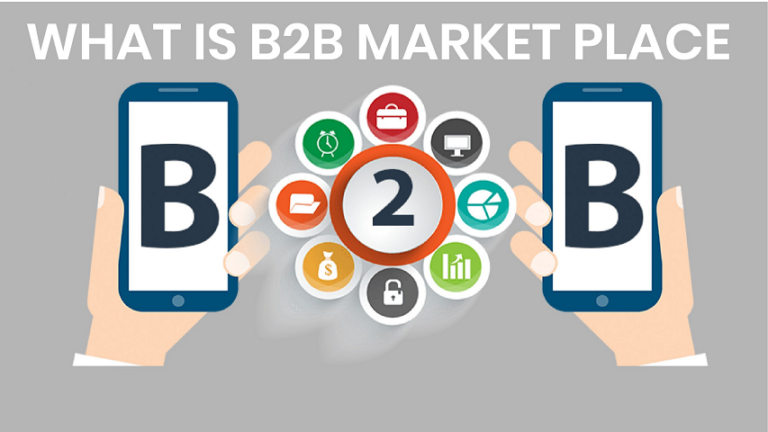In the realm of business-to-business (B2B) transactions, manufacturing marketplaces have emerged as pivotal platforms reshaping how industrial goods are sourced, sold, and managed globally. These digital marketplaces serve as dynamic ecosystems where manufacturers, suppliers, distributors, and buyers converge to streamline procurement processes, enhance supply chain efficiencies, and foster business growth. This guide delves into the intricate workings of B2B manufacturing marketplaces, exploring their significance, functionality, benefits, challenges, and future prospects.
Understanding B2B Manufacturing Marketplaces
B2B manufacturing marketplaces are online platforms that facilitate transactions between businesses involved in the manufacturing sector. Unlike traditional procurement methods that relied heavily on personal networks or limited supplier databases, these marketplaces leverage technology to connect a vast network of buyers and sellers across various industries. They provide a centralized hub where businesses can browse, compare, and procure a wide range of products, from raw materials and components to finished goods and specialized equipment.
Key Players in B2B Manufacturing Marketplaces
-
Manufacturers and Suppliers: These are the primary sellers on B2B manufacturing marketplaces, ranging from large-scale industrial manufacturers to specialized component suppliers. They list their products, specifications, pricing, and availability on the platform.
-
Distributors and Resellers: Often intermediaries in the supply chain, distributors and resellers play a crucial role by aggregating products from multiple manufacturers and offering them to buyers in smaller quantities or customized configurations.
-
Buyers: Businesses looking to source materials, components, or finished products for manufacturing operations or resale purposes are the key buyers. They benefit from access to a diverse range of suppliers and competitive pricing options available on the marketplace.
How B2B Manufacturing Marketplaces Work
-
Product Discovery and Selection: Buyers use search filters, categories, and specifications to discover relevant products. Advanced search algorithms and AI-driven recommendations enhance product visibility and help buyers find the best match for their requirements.
-
Transaction Facilitation: The marketplace facilitates transactions through integrated tools for RFQs (Request for Quotation), negotiations, purchasing agreements, and secure payment gateways. This ensures transparency and efficiency in the procurement process.
-
Logistics and Fulfillment: Many marketplaces offer integrated logistics solutions, including shipping, tracking, and delivery management, to streamline the supply chain from order placement to receipt of goods.
Benefits of B2B Manufacturing Marketplaces
-
Increased Efficiency: Streamlined procurement processes reduce lead times and administrative overhead, allowing businesses to focus on core activities.
-
Expanded Supplier Network: Access to a global network of verified suppliers expands sourcing options and reduces dependency on local markets.
-
Cost Savings: Competitive pricing, bulk purchasing discounts, and reduced inventory costs contribute to overall cost savings for buyers.
-
Market Transparency: Transparent pricing, product specifications, and supplier reviews enable informed decision-making and mitigate risks associated with sourcing.
Challenges in B2B Manufacturing Marketplaces
-
Quality Control: Ensuring product quality and compliance with industry standards across diverse suppliers can be challenging.
-
Integration Complexity: Integrating marketplace functionalities with existing ERP (Enterprise Resource Planning) systems or procurement workflows requires careful planning and IT resources.
-
Data Security: Protecting sensitive business information and transaction data from cyber threats and breaches is paramount.
Future Trends and Innovations
-
AI and Predictive Analytics: Leveraging AI for demand forecasting, inventory management, and personalized recommendations will enhance operational efficiencies.
-
Blockchain Technology: Adoption of blockchain for transparent supply chain traceability, product authentication, and secure transactions.
-
Sustainability Initiatives: Increasing focus on eco-friendly products, sustainable sourcing practices, and carbon footprint reduction initiatives.
-
Customization and Personalization: Growing demand for customized manufacturing solutions and flexible procurement options tailored to specific business needs.
Conclusion
B2B manufacturing marketplaces represent a transformative force in the industrial landscape, offering unprecedented opportunities for efficiency, growth, and innovation. As businesses increasingly embrace digital transformation, leveraging these platforms will be crucial in staying competitive and resilient in a rapidly evolving global economy. By understanding their functionality, benefits, challenges, and future trends, stakeholders can harness the full potential of B2B manufacturing marketplaces to drive sustainable business success.
In essence, these marketplaces are not merely platforms for transactions but pivotal enablers of strategic partnerships, operational excellence, and industry advancement in the modern era of manufacturing and commerce.

